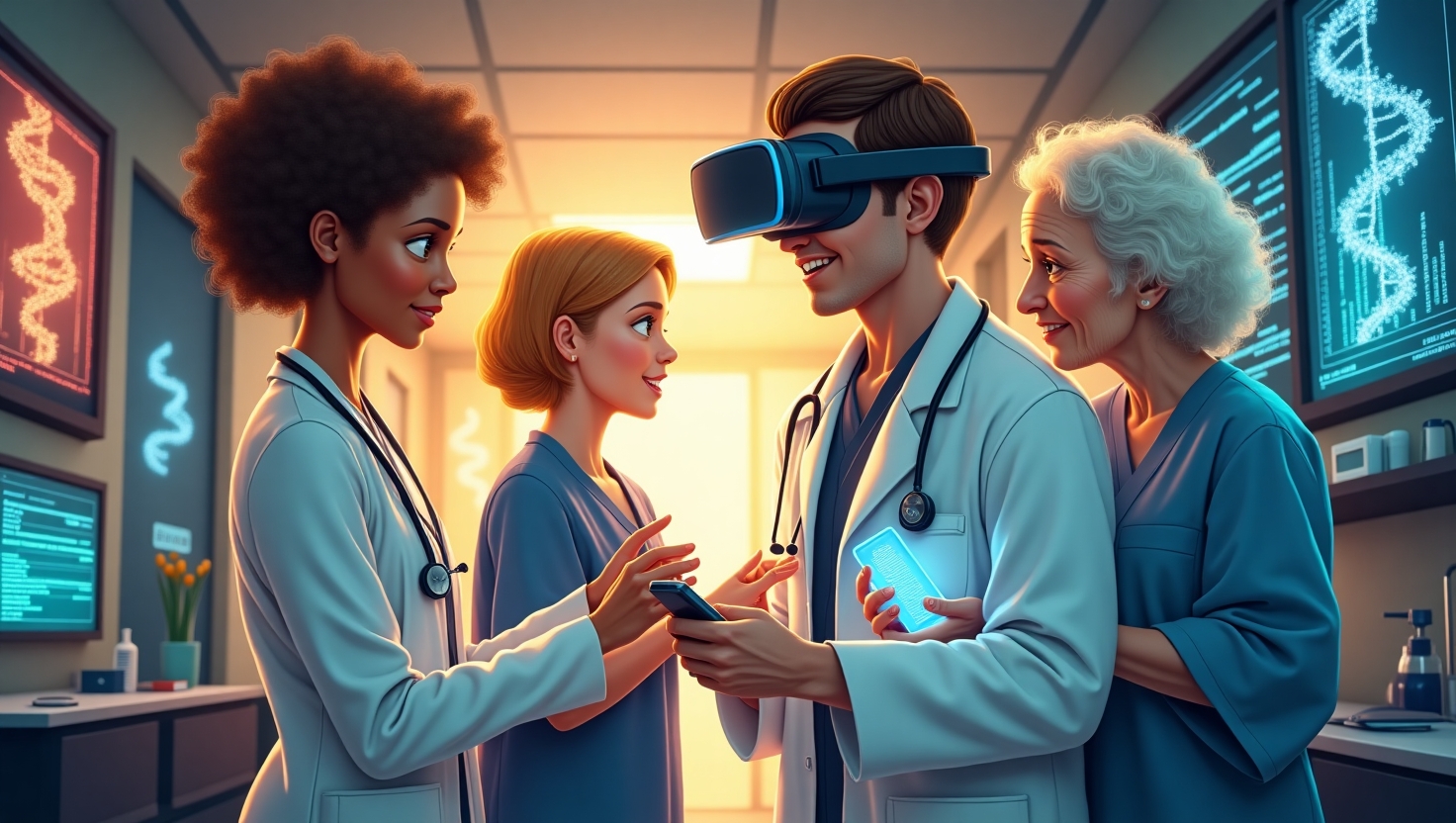The Revolution of AI in Biomedicine: Transforming Healthcare with Technology
Introduction
Artificial Intelligence (AI) has transcended its early applications in technology, making groundbreaking inroads into the field of biomedicine. As a transformative force, AI in biomedicine is steering healthcare into an era of enhanced precision and efficiency. The integration of AI into this field is not just about automating processes but reshaping biomedical knowledge to create new possibilities in patient care, medical research, and drug discovery. As AI continues to evolve, its impact on healthcare is garnering significant attention due to its potential to revolutionize how we understand and address complex medical challenges.
Background
The journey of AI research in medicine has been one of evolution and adaptation. From its nascent stages, AI has developed sophisticated algorithms capable of interpreting complex biomedical knowledge, defined as the collective understanding of biological processes and medical data that drive decision-making in healthcare. This evolving field is crucial for AI applications today, bridging the gap between raw data and actionable insights.
A prime application of AI is in drug discovery, where it enhances researchers’ capabilities by offering tools to predict biological interactions and outcomes significantly faster and with more precision than traditional methods. This not only accelerates research but also lowers costs, thereby democratizing access to innovative treatments. The role of AI in drug discovery exemplifies how technology can push the boundaries of medical research, offering new hope for tackling diseases that were once considered insurmountable.
Trend
The landscape of AI technology in biomedicine is marked by several emerging trends. Recent advancements have seen the development of tools like BioCypher, which specialize in analyzing biomedical knowledge graphs. These tools empower researchers to simulate complex biological relationships and intelligent querying, as discussed in a recent article on MarkTechPost.
Statistics indicate a marked increase in the use of AI-powered tools in research, with entities and relationship simulations numbering in the thousands, facilitating vast analytical possibilities. This rise parallels the overall trend of integrating sophisticated AI technologies to streamline the processes involved in generating and understanding scientific data.
Insight
One of the most promising areas where AI in biomedicine is making significant strides is in drug discovery. By harnessing AI’s capabilities, researchers can streamline processes that were traditionally time-consuming and resource-intensive. For instance, combining tools like BioCypher and NetworkX allows for flexible data analysis, enabling researchers to visualize knowledge graphs and simulate complex interdependencies, such as gene-disease associations or drug-target interactions.
Imagine AI as a skilled librarian, capable of not only knowing where every book is but also understanding the connections between their content, suggesting new knowledge formations and insights into treatment pathways. These advancements do not merely accelerate biomedical research; they transform it by providing researchers with more refined, data-driven hypotheses and experimentations.
Forecast
Looking forward, the future of AI in biomedicine promises an exciting array of developments. As AI algorithms grow more sophisticated, the potential for them to revolutionize drug discovery and deepen our biomedical knowledge continues to expand. We can anticipate a day when AI might predict disease outbreaks based on biological data patterns or suggest new therapeutic compounds with unprecedented accuracy.
The integration of AI in personalized medicine, where treatment is tailored to an individual’s specific genetic makeup, is another area poised for growth. Such applications offer a glimpse into a future where AI not only aids but actively partners in crafting healthcare solutions that are as unique as the patients themselves.
Call to Action
The pace at which AI in biomedicine is advancing invites both professionals and enthusiasts alike to become part of this dynamic field. By exploring ongoing innovations and developments in AI, individuals and companies can better position themselves to implement these technologies in their research or treatment approaches.
For those interested in diving deeper, consider exploring resources like the tutorial on combining BioCypher with NetworkX as featured on MarkTechPost. These insights not only enrich one’s understanding but can also guide the practical application of AI in real-world biomedical scenarios.
The future of healthcare is being written now, with AI at its helm. Embrace the potential that AI research holds and contribute to a revolution that is set to redefine the boundaries of medicine and science.

